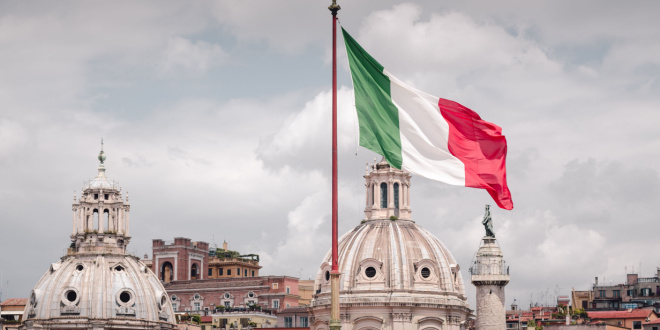Italy has officially launched a new licensing regime for online gambling concessions, completing phase-1 of the government’s reorganisation of the gambling sector in 2024.
The final approval of Italy’s new licensing regime was documented via the EU’s Official Journal, authorising the Italian government’s procedure to award new nine-year licences for online gambling concessions.
Submitted to the European Commission (EC) in November, the Italian government’s plans were delayed due to a ‘detailed opinion’ submitted by the Malta Gambling Authority (MGA) on B2B technicalities, which saw the licensing framework placed under an ‘extended standstill period’.
Though delayed, the EC guaranteed changes sought by the Ministry of Finance and Customs and Monopolies Agency (ADM) to apply a €7m authorisation fee for each online gambling license. The new license fee will be implemented alongside a concessionaire’s operating fee of 3%.
The fee will be implemented alongside a concessionaire’s operating fee of 3%. Applications for the new concessions must be submitted by 30 May 2025, with the process expected to take nine months from the tender’s publication.
To qualify, applicants must meet strict eligibility criteria, including proven expertise in managing and operating gaming platforms within the European Economic Area (EEA).
Operators must have legal or operational headquarters in the EEA, hold a valid licence, and demonstrate total revenues exceeding €3m over the past two fiscal years. Each applicant can apply for up to five concessions. Payments for the €7m licence can be made in two instalments: €4m upon award and €3m upon operations launch, which must occur within six months of receiving the concession.
The ADM anticipates around 50 operators applying for these new licences, generating projected revenue of €350m and an additional €100m annually from fixed concession fees.
Applicants are required to submit a provisional guarantee of €750,000, issued as a deposit or ‘surety bond’ through authorised banks or financial intermediaries.
A final guarantee of €3.7m for 2025, equating to 10% of the tender’s total value (€37.1m), will also be required. Subsequent guarantees will include a fixed quota of €500,000 and a variable component based on operational performance. Additionally, operators must pay a €560 fee to ANAC – Italy’s National Anti-Corruption Authority.
In 2025, ADM and MEF will move to phase-2 of the gambling sector’s reorganisation, focusing on implementing uniform federal regulations across Italy and enhancing protections for gambling venues. Negotiations are underway with regional governments to standardise laws nationwide, aiming to address illegal gambling activities effectively.
One of the most anticipated changes is the revision of the controversial Dignity Decree, the mandate of the former Lega-5-Star government which has banned gambling advertising and sponsorships since 2019.
Interviewed last week by La Verità, Roberto Alesse, Director General of the ADM, emphasised that the blanket ban had been “economically damaging” to Italy, with measures contested by Serie A clubs, media outlets, and trade bodies.
Alesse branded the Dignity Decree a “hypocritical regulation“ and stated that reforms would align Italy’s standards with European norms while balancing regulatory oversight, economic growth, and consumer protection.
The ADM sees these reforms as an opportunity to re-establish Italy as a leader in the European gambling sector, driving higher tax revenues while safeguarding consumers from illegal operators. However, the ADM faces challenges, including a 6% decline in gambling tax revenues in 2023, with €11.62 billion collected – a figure projected to drop further in 2024.
Alesse concluded that Italy’s gambling reforms aim to achieve balanced regulations that stimulate economic activity while addressing illegal gambling. “In a liberal state, legal gambling cannot endure excessive prohibitions. We must adapt national standards to those required by Europe.”
Don’t forget to subscribe to our Telegram channel!
